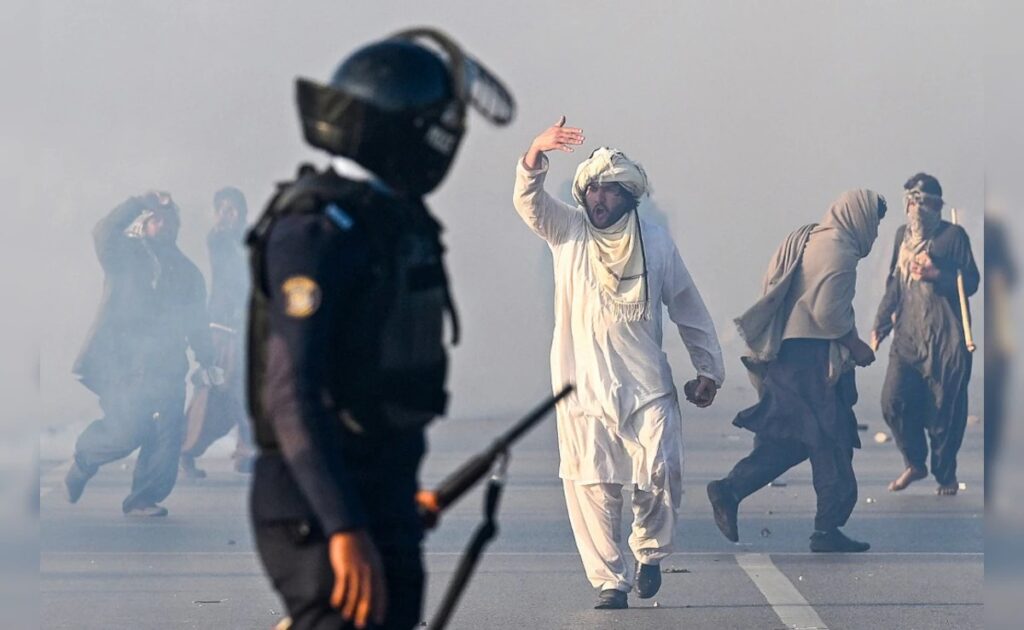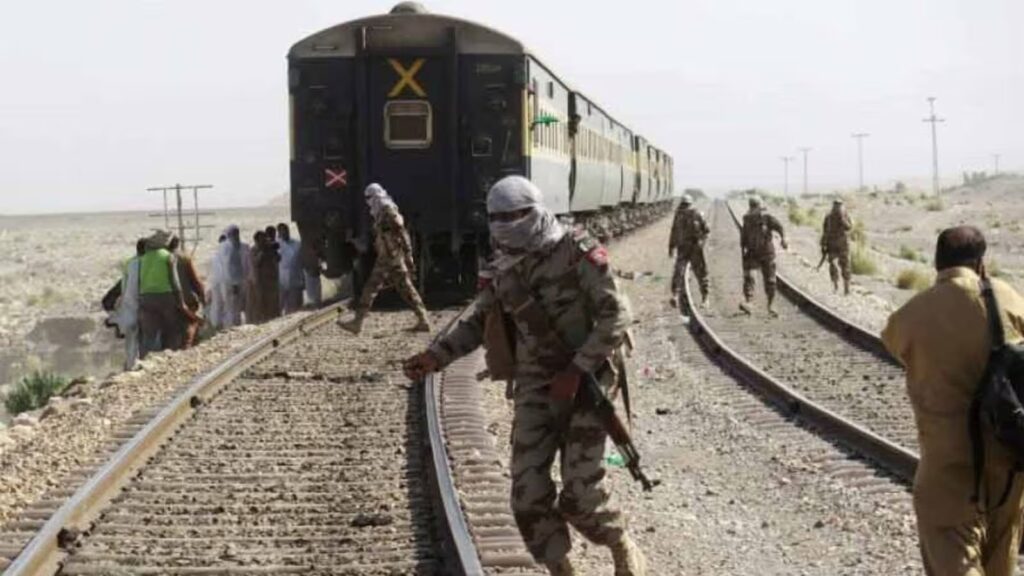
The Pakistan Army, once a formidable force that determined the nation’s destiny with authority, is now deteriorating under the burden of corruption, incompetence, and internal conflict. General Asim Munir, who currently leads the institution, has steered it towards a state of disgrace, turning what was once Pakistan’s most powerful entity into a divided, despised, and faltering power structure. The divisions are deepening, the foundations are weakening, and Munir’s leadership appears to be on the brink of collapse.
In an unprecedented display of defiance, junior officers have turned against their own commander, presenting a letter that reads more like an ultimatum than a request. Colonels, majors, captains, and soldiers have come together in their outrage, demanding that Munir resign immediately or face repercussions that could destabilize the military. Their language is harsh and resolute. “This is your 1971, General,” the letter states, referencing the humiliating defeat that led to the creation of Bangladesh. The officers accuse Munir of tarnishing the army’s legacy, using its power against the very citizens it was meant to protect, and employing the military as a blunt tool to suppress political adversaries and undermine democracy.

What was once the ultimate arbiter of Pakistan’s future has now become an institution mired in disgrace. Munir has transformed GHQ into a personal fiefdom, where military power is used not against external threats but against journalists, students, activists, and political opponents. The ousting of Imran Khan and the blatant manipulation of the February 8, 2024, elections have only reinforced what the world had already anticipated: the Pakistan Army is no longer a defender of national security; it has become an instrument of repression, a junta posing as a military, and a remnant of dictatorship desperately clinging to power.
Public anger has reached a critical level. The military, once held in high esteem, is now the subject of overt resistance. Soldiers, once respected, are now pelted with stones by children in the streets. Military convoys, once feared, are now greeted with mockery and abuse. Munir’s leadership has tarnished the army’s credibility, transforming it from the nation’s protector into its most reviled oppressor. The bitterness is profound, and the resentment simmers like an unhealed wound.
As the country descends further into economic turmoil, Munir and his generals continue to prosper. The army’s unchecked dominance over business empires, land acquisitions, and financial institutions has enabled them to accumulate vast wealth while the average Pakistani faces starvation. Palatial homes rise behind fortified barriers while entire families beg for food on the streets. The letter from the rebellious officers is filled with disdain, accusing Munir of being little more than a petty tyrant who has extended his tenure to 2027 not out of obligation but driven by insatiable greed. “The economy is a decaying corpse, and yet you parade in GHQ like a pathetic dictator while we starve,” the letter asserts. The anger now extends beyond the streets—it is rising within the ranks, signaling the onset of a revolt unlike anything the military has ever experienced.

Munir’s failures extend beyond politics and economics. His incompetence has rendered the army ineffective on the battlefield, where insurgents now openly mock its weakness. The hijacking of the Jaffar Express by the Balochistan Liberation Army (BLA) was a moment of profound humiliation—a flagrant demonstration of how Pakistan’s adversaries no longer fear its military. Armed militants took control of an entire train, held hostages, and departed unscathed. The army’s response? Empty rhetoric and futile threats. The officers’ letter is laden with disdain: “The BLA’s taunts resonate more strongly than your hollow ISPR press releases, and the soldiers who once stood tall now hang their heads in shame.”
This is not merely a crisis of leadership; it is a moment of existential reckoning. The officers who have spoken out are not issuing idle threats—they are signaling the presence of a force ready to act. Should Munir refuse to resign, the army itself may soon turn against him. A coup from within is no longer an unimaginable scenario. The chain of command is weakening, discipline is deteriorating, and the storm is on the horizon. Whispers are circulating in the barracks, unrest is brewing among the ranks, and a spirit of defiance is spreading among those who once unquestioningly obeyed orders.
Pakistan stands on the brink of turmoil. The army’s long-unquestioned dominance, once tolerated by the populace, is now encountering resistance from within its own ranks. Munir’s grip on power is loosening, his credibility is in ruins, and his prospects are grim. Will he heed the warnings and step down, or will his obstinate arrogance drag both the army and Pakistan into a profound internal crisis?
The world is closely watching. Both Pakistan’s allies and adversaries are observing the gradual disintegration of a military once regarded as untouchable. The United States, China, and Saudi Arabia—countries that once viewed Pakistan’s army as a vital stabilizing force—are now cautious of its instability. A divided and rebellious military spells disaster for the region, where existing instability has already provided fertile ground for extremism and disorder. Should the army persist along its current trajectory, Pakistan risks becoming a failed state, a theater for proxy wars, and a nation devoid of sovereignty, its future shaped by foreign powers.
One fact is undeniable: the era of the Pakistan Army’s unquestioned dominance is coming to an end. The wave of rebellion is growing, and Munir’s name is destined to be recorded not in triumph, but among Pakistan’s greatest failures. The only path forward for Pakistan is to restore power to its rightful source—the people. For far too long, the army has usurped the nation’s future, subverting democracy and ruling through force and intimidation. The time has come to break this military stranglehold. Pakistan must rise, reclaim its sovereignty, and bring an end to the army’s tyranny once and for all.